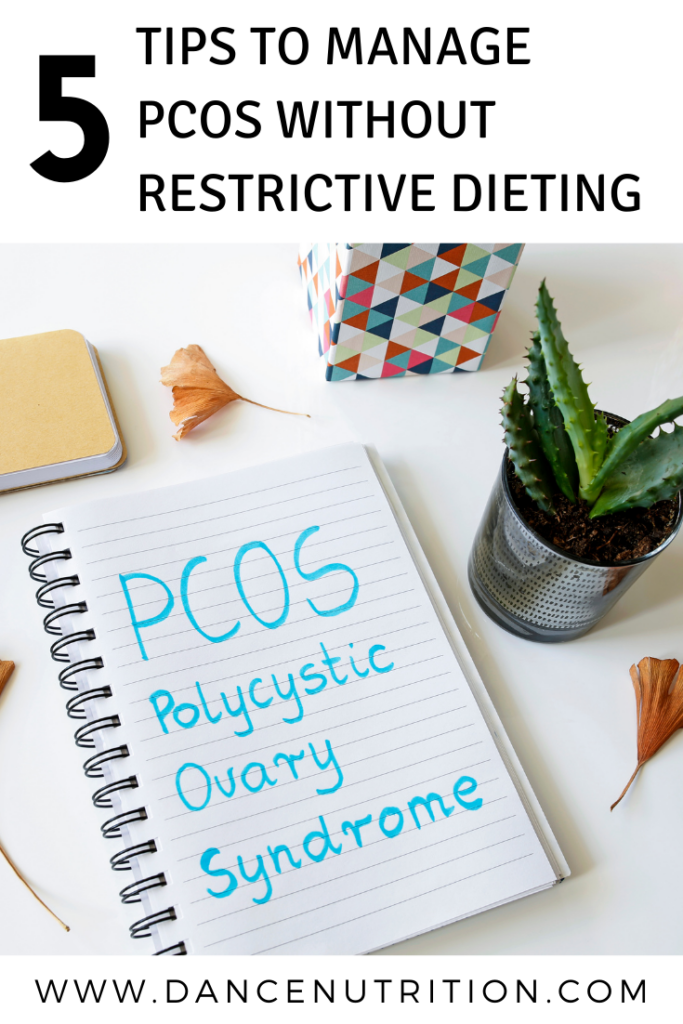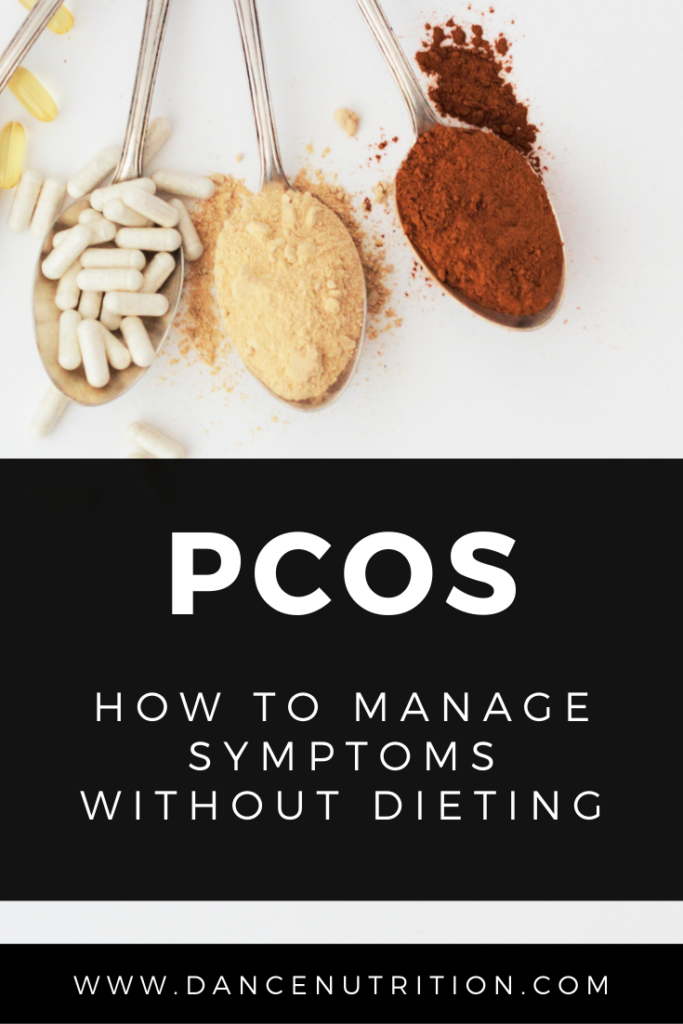Hormonal imbalances, such as those caused by Polycystic Ovary Syndrome (PCOS), can leave many dancers feeling overwhelmed and confused. PCOS, a common endocrine disorder, affects approximately 5% to 10% of women of reproductive age. This article breaks down the complexities of PCOS, helping those with the condition understand how to manage it without succumbing to the pressures of diet culture.
What Are The Symptoms of PCOS?
PCOS manifests in various ways, often impacting both the body and mind. Common characteristics include:
- Weight changes (most often weight gain)
- Hyperandrogenism characterized by symptoms like acne, facial hair, and thinning hair.
- Ovarian dysfunction.
- Difficulty getting pregnant from hormonal imbalances that hinder fertility.
- Irregular periods and other menstrual irregularities.
Because weight gain is commonly experienced with PCOS, medical management often emphasizes weight loss. However, this weight-centric approach can be harmful, particularly in a society steeped in weight stigma. These societal pressures can make navigating a PCOS diagnosis both physically and mentally challenging, increasing the risk of disordered eating.
How is PCOS diagnosed?
A PCOS diagnosis typically requires the presence of at least two of the following three symptoms:
- Irregular or Missing Periods: This can include long cycles or complete absence of periods.
- Ultrasound Findings: Presence of ovarian cysts is often detected via ultrasound.
- Blood Tests: Hormonal imbalances, glucose intolerance, insulin resistance, and elevated triglyceride levels are commonly found.
Tips To Manage PCOS Without Dieting
Managing PCOS without falling into the trap of diet culture is crucial for your physical and mental well-being. Here are some tips to help you navigate this journey:
#1: Steer Clear of Diet Culture
Despite the weight-centric focus often prescribed for PCOS management, research doesn’t support restrictive dieting for treatment. Diet cycling (the cycle of bingeing and restricting food) worsens symptoms, creating a toxic relationship with food and increasing the risk of binge eating.
#2: Focus on Behaviors, Not Weight
Registered Dietitian Sam Abbott emphasizes the importance of focusing on behaviors such as sleep habits, stress management, and self-care, rather than obsessing over body weight. Eating should honor both your physical and emotional health. A weight-neutral approach allows you to build a better relationship with food and helps you understand what your body needs. For dancers, stress management is also key to supporting hormonal balance— check out additional tips for stress relief here.
#3: Focus on Food Neutrality
Insulin resistance is a common aspect of PCOS, leading many to feel the pressure to eliminate carbohydrates. Insulin resistance is a condition that makes it difficult for the body to metabolize glucose (sugar). Since associations exist between insulin resistance and diet/lifestyle factors, treatment for the condition is often translated to involve behaviors like cutting out carbs, swapping out dairy, and avoiding sugar.
But cutting out carbs and avoiding sugar will likely lead to rebellion eating as a compensatory response to deprivation. Also, complete avoidance of grains and dairy can lead to detrimental deficiencies of iodine, a nutrient important for thyroid (and thus, hormone) health. Unless you also have celiac disease and require the avoidance of gluten, and/or, you’re lactose intolerant and cannot tolerate dairy, cutting out carbs, fearing grains, eliminating dairy, or restricting sugar is neither necessary nor suggested. We know that those with Type 2 Diabetes (another condition that involves insulin resistance) respond better to intuitive eating. So, focus on food neutrality (you can learn more about this here) and an intuitive approach.
#4: Consider Gentle Nutrition
Gentle nutrition encourages adding complex carbs like fibrous whole grains, fruits, and vegetables to your diet to support stable blood sugar levels. These foods slow digestion, ultimately leading to more controlled glucose (and insulin) levels. Combine these foods with sources of protein and fats to stabilize blood sugar. Here’s an article to learn more about the role of fiber in your diet.
Instead of avoiding carbohydrates, integrate sources of complex carbs into your meals and snacks. This will slow digestion and ultimately lead to more controlled glucose (and insulin) levels throughout your day. To do this, when feasible, try adding whole grains, fruits, and vegetables to your week. You can learn more about the different types of carbohydrates here. And for a deep dive into the benefits of fiber, check out this article. Adding sources rich in protein and fat will further this effect, supporting steady blood sugar.
#5: The Power of Joyful Movement
Additionally, joyful movement and intuitive eating can help build a sustainable lifestyle that manages the symptoms of PCOS effectively.For more help, check out Christy Harrison’s podcast Food Psych Episode #199 with Julie Duffy Dillon. You can also follow Sam Abbott’s page (@PCOSNutritionist) and free workbook for PCOS nutrition.
#5 Don’t Fear Medical Management
Managing your PCOS symptoms may require more than just meal plan adjustments. Trying to control your body’s energy balance through restrictive eating or excessive exercise can exacerbate symptoms. If your doctor recommends medication or other treatments to help manage your PCOS, don’t hesitate to explore those options. Medications can often be a helpful part of the management plan and can provide relief from the most challenging symptoms of PCOS.
Key Takeaways: Dancers and PCOS
PCOS is a complex condition that requires a nuanced approach to management. Rather than focusing on weight or restrictive dieting, dancers with PCOS should prioritize behaviors that nurture their bodies, such as balanced nutrition, stress management, and joyful movement. With time and patience, managing PCOS becomes not just about the body but about creating a sustainable, supportive relationship with food and self-care.




